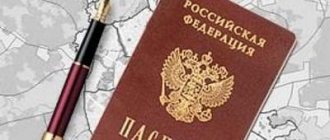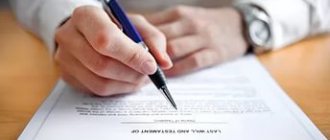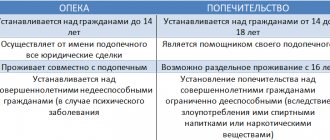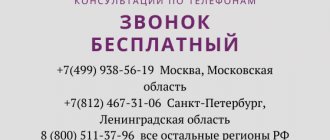One of the worst nightmares of a modern person is to be left without a livelihood. Especially in a situation when you realize that you have funds on your bank card - or is it more correct to say - did you have them recently? But they suddenly became unavailable.
In this article we will avoid the topic of fraud as a way to lose your savings. But let's talk about what to do if the bailiffs seized your bank card. Or it was suddenly blocked by the bank by decision of the same bailiffs.
According to official data, 87% of the adult population of our country are bank card holders. Many physical There is not even one person on these cards, but several, sometimes up to 10. This means that, most likely, all these people receive salaries, pensions and other “white” payments on their bank cards. On the one hand, this is convenient, since money is always “at hand”, you can quickly make purchases, including via the Internet. Or help a loved one translate.
On the other hand, the chance of suddenly losing them increases - in the sense of money, not loved ones. Although money issues often make close people extremely distant. How and for what can you get arrested, blocked or debited from a bank card? In this article we will cover:
- How can I find out why I have been arrested?
- How quickly do bailiffs block cards (withdraw money) and how much do they have the right to withdraw?
- What is the difference between blocking a card and seizing it?
- Which cards are not seized by bailiffs?
- How to avoid blocking funds?
- How to remove a seizure from a bank card?
- What to do if the bailiff does not remove the seizure from the card?
How and for what can you get arrested, blocked or debited from a bank card?
Everything is very simple here. You don’t even have to take your butt off the sofa. It is enough to first accumulate debts - for taxes, loan payments, housing and communal services, alimony or traffic police fines, etc. And then stubbornly and methodically ignore calls and letters. First from those to whom you owe. Then - from the collectors. Then - from the court and from the bailiffs.
And one fine day, when you make purchases, your plastic, or rather the funds on it, will be blocked. Or you can commit one of the illegal acts, the punishment for which is provided for in Section 8 of the Criminal Code of the Russian Federation (“Crimes in the economic sphere”).
Enforcement proceedings are closed: what to do
Enforcement proceedings will be closed only if the person pays the debt in full
, and it doesn’t matter exactly how the money will be deposited. The debtor can pay the debt on his own or wait for the bailiff to write off the amount of the debt from the bank account.
If the debtor pays the debt on his own, it is better to give the payment receipt to the bailiff, otherwise the FSSP may continue to write off funds from the current account - information about full payment of the debt may reach the bailiff with a delay of several days.
After the debt is repaid, the bailiff issues a ruling to complete the enforcement proceedings
. Copies of the decision are sent to the former debtor and the claimant.
If a person has not received a copy of the resolution on the completion of enforcement proceedings against himself, then he should contact the bailiff and ask him to hand over a copy of the document. The FSSP resolution will serve as proof that the person has fully repaid the debt
before the creditor in the event of controversial situations.
How can I find out why I have been arrested?
What does "arrest" mean? You need to immediately make a reservation that your “plastic” will not be physically seized. A rapid response team (mask show) will not come to you and will not put you “face down on the floor” in order to find and take away your card. Everything is more prosaic. The restrictions apply to the money that is on the card, or more precisely, on the bank account to which it is “linked”.
In addition, it is necessary to distinguish between collection and seizure. Seizure is an interim measure, including in criminal cases, while foreclosure serves to transfer money to your creditor on the basis of an appropriate judicial act.
How can you tell if a card (money) has been “seized”? If you suddenly see zeros in your banking application, or the message “blocked” appears, this means that there are problems with your card.
Can a bank arbitrarily seize (block) or write off your funds on cards without specifying bailiffs? Maybe. But not on my own initiative. According to current legislation, the claimant can bring the writ of execution directly to the credit institution, bypassing the joint venture service. In addition, in criminal cases, the investigator or court sends documents on the seizure of accounts directly to the financial organization.
How to find out who has seized an account? You can contact the bank branch where you are served for information. Or look on the website of the FSSP of the Russian Federation to see if there are enforcement proceedings against you.
There is no information about the progress of the investigation and consideration of criminal cases in open sources.
However, we must make a reservation that sometimes banks block cards on their own initiative. They do this in compliance with the requirements of Federal Law 115 of the Russian Federation, which forces banks to block customer cards for suspicious transactions that may be made for the financing of terrorism or money laundering. But it’s better not to get caught in such blockages. It is extremely difficult to wash away such accusations.
How quickly do bailiffs block cards (withdraw money) and how much are they entitled to withdraw?
Let's try to figure out how many days after the trial the bailiffs block the debtors' cards or withdraw money from them. Much depends on the trial itself. For example, whether an appeal was filed against the decision.
The writ of execution will be issued after the decision comes into force, at the request of the plaintiff. That is, in theory, a person can win the court and forget to receive a writ of execution in order to send it for enforcement. But expecting a debtor to be so forgetful is, at the very least, short-sighted.
The joint venture, after receiving the writ of execution and initiating proceedings, sends a copy of the resolution to the debtor. The latter has 5 days from the date of receipt of such a letter of “happiness” to voluntarily repay the debt. Therefore, it is problematic to accurately calculate how many days it will take for the joint venture to reach your savings.
But within a week or 10 days, the bailiff will receive comprehensive information about your bank accounts.
Let us remind you (or enlighten you, if you didn’t know) that the bailiff will easily and quickly find all your bank accounts. Banks inform the tax service about them. Also, the catalog of citizens’ accounts is maintained by the corresponding structure within the Bank of Russia. And any bank will never refuse to comply with the bailiff’s demands to seize accounts and block cards.
It is much easier to answer the question - how much money can bailiffs withdraw? Because the exact numbers (percentages) are specified in the law. This:
- up to 50% from wages and other income when repaying debts, say, under loan agreements, etc.;
- up to 70% from the same income as in the first case, but for the following obligations: alimony, compensation for damage from crimes, harm to the health and life of citizens, payments for the loss of a breadwinner;
These restrictions apply to “new” revenues arising after the opening of an individual entrepreneur. If you have accumulated a decent amount on your cards, including salary cards (perhaps you just received another bonus, advance payment, etc. yesterday), then the bailiff will be happy to write off all the money from the card and transfer it to your collector.
Seizure and blocking of cards do not always come suddenly. They are preceded by debts
Blocking your cards (credit, salary, debit) and leaving you without money is easier than you think. If you have an overdue debt and you do not live at your registered address, do not check your mail there, or do not keep track of court cases, such blocking may come as an unpleasant surprise for you at the most inopportune moment.
Receiving salary
No less important is the question of how to receive a salary if the bailiffs have seized the account. First of all, we should not forget about the restrictions on wage deductions established by Art. 99 of Law 229-FZ. If you are completely unable to use your salary, you must contact the bailiff with a statement and supporting documents. This could be a certificate from your place of work.
Another option to solve the problem is to receive your salary in cash at the organization’s cash desk. The employee retains this right, and the employer cannot deny him if he receives a corresponding application.
What is the difference between blocking a card and seizing it?
For an ordinary person, it’s all the same whether it’s will or whether it’s captivity. Both arrest and blocking of the card do not give a person the opportunity to manage his funds in a bank account: pay for purchases in the physical and virtual worlds, make transfers, withdraw money from an ATM. Sometimes it’s even impossible to buy a loaf of bread and a pack of cigarettes! Advice - think again about the benefits of cash in the house.
But there are still differences between arrest and blocking of a card.
Seizure of the card
is an interim measure with the help of which, at the initiative of the bailiff, the funds on the debtor’s card are completely or partially blocked. The debtor will no longer be able to manage the money on his card. In this case, money can be credited to the card account. She will receive both a salary and a transfer from relatives.
Card blocking
- this is a ban on all operations that were previously available using the card. You cannot pay with a card, you cannot withdraw cash from it. ATMs can keep such a card for themselves, in common parlance - “gobble it up”. Funds cannot be transferred to a blocked card - they will be returned to the sender.
Which cards are not seized by bailiffs?
There is verified information that bailiffs refuse to block contour maps and road maps. Well, but seriously? Bailiffs have the right to impose penalties on absolutely all cards of all Russian banks and all payment systems. Therefore, it would be more correct to ask this way - what sums of money cannot the bailiffs collect?
For example, a joint venture does not have the right to withhold funds from the following compensations (payments):
- Compensation for damage caused to health;
- Compensation for damage due to the loss of a breadwinner;
- Alimony;
- Maternal capital;
- Child benefits;
- Payments to combatants;
- Travel allowances, lifting allowances, associated with a geographical change of place of work.
How to avoid blocking funds?
What should you do to avoid blocking your card by bailiffs? These tips may seem strange to some, but to prevent your funds from being blocked, you need to:
- First, avoid the formation and accumulation of overdue debt. Overdue debt leads to legal proceedings with all the ensuing consequences. And the consequences are that you are suddenly left without money.
- Secondly, if due to various life situations (loss of job, unforeseen large expenses) you are still late in making payments on your debts, then you do not need to ignore calls and letters from the bank, and from other creditors. There is a possibility of agreeing on an installment plan to repay the debt, because the consideration of the case in court will take a certain, not the shortest, time.
- Thirdly, if the first two options did not work and you are sued, you do not need to ignore it. There are legal ways to “delay” the consideration of a case, reduce the penalty, and obtain a deferment or installment plan for the execution of the decision. In addition, by providing information to an employee of the FSSP of the Russian Federation about the availability of salary, social or credit cards, you can avoid blocking them or illegally debiting funds from them.
- Fourthly, no one forbids you to withdraw money before your accounts are blocked, of course, if you have time to do so. The method is not entirely “correct” from the point of view of the law. But he will not let you die of hunger or end up on the street, in case you are renting housing.
- Fifthly, feeling that “debts are burning,” you can abandon all cards. With a legal job and a white salary, this is difficult to do. But, knowing that the bailiffs are about to start hunting for your funds, it is better to “go in cash”.
What property can be seized for debts?
It is allowed to seize what is not prohibited. There is no point in listing everything, but here are a few interesting options:
- Pets. By law, they are considered property of the Civil Code of the Russian Federation Article 137. Animals, so they are subject to seizure and subsequent sale. For example, in the Stavropol Territory, the owner was arrested for debts. In the Stavropol Territory, a cat was arrested for debts. In 2015, a bill was introduced into the State Duma. The Duma proposed banning the arrest of pets, which would prohibit this, but it did not find support.
- Fence. In the Stavropol region, bailiffs arrested a fence in the Krasnodar region, a fence made of corrugated sheets. The fence was dismantled and sold at auction.
- Hay. Two hundred haystacks ended up “Instead of 200 thousand rubles - 200 haystacks”: bailiffs seized hay from an alimony defaulter and put it under arrest because its owner, a farmer, did not pay alimony.
- Door. The debtor made it himself and wanted to install it instead of the old one. But before the South Ural bailiffs had time to arrest the door.
In general, nothing is safe. Fortunately, you can Federal Law No. 229-FZ of October 2, 2007, choose for yourself what you need least and offer it for implementation. But only if the price of these things is sufficient to pay off the debt.
How to remove a seizure from a bank card?
There are not many options to get rid of the pressure from the bailiffs:
- The simplest and surest way to remove a seizure from a card is to pay off the debt under enforcement proceedings (if the blocking is related to the debt).
- The court's decision is not always lawful. Perhaps, for some good reason (you were under treatment or mail was not delivered to you), you missed the trial and were unable to provide evidence of your case.
In this case, it is necessary to appeal the court decision. The process is long and difficult, but if you have evidence and the truth is on your side, then it’s worth going this route.
- According to current legislation, you have the right to ask the body that issued the executive document (court order, writ of execution) to grant a deferment or installment plan for its execution. If you do not dispute the fact of the debt, but you do not have the funds to cover it at once, then you need to go to court and ask for a temporary respite.
If you are interested in the question of when the card will be unblocked after paying off the joint venture debt, then here is some food for thought. Interaction between employees of the FSSP of the Russian Federation and credit institutions occurs electronically. As soon as the bailiff sees the receipt of funds into the account of the joint venture service and the full amount of the debt, he must send a message about the removal of restrictions from the card to the bank.
Should, but doesn't always do! To speed up the procedure, you can come to the bailiff for a personal appointment, which takes place twice a week. You must come with original payment documents. But in general, the bailiff has three days to unblock the card. And the bank has one more day to fulfill the bailiff’s instructions.
Is it possible to open a new account in another bank and save your money? For example, if your Sberbank card has been seized, and you have long wanted to become a client of Alfa Bank. You can get a card from another bank, but the period of use will be limited to the period during which the bailiff receives information about your new “plastic”.
Legitimate cases
If the seizure of the debtor’s bank card and the write-off of funds to repay the financial debt occurred legally, the only correct way out of this situation will be the full repayment of the debt amount.
An important point: if within 5 working days after the debtor receives notification of a court decision to forcibly collect funds to pay the debt, monetary obligations are not repaid, the bailiff has the right to block the bank card. In addition, after the expiration of the five-day period, if the repayment requirements are ignored, the debtor citizen will also have to pay the overdue debts. Its amount is 7% of the debt amount.
Experts recommend the following algorithm of actions:
- after a citizen has learned about the arrest of a bank card and/or debiting of funds, it is necessary to contact a bank employee via the hotline (where it was blocked) or visit the nearest branch of a banking organization in order to find out the reasons for the incident. A bank employee will provide you with information about who filed a lawsuit to repay the debt, its amount, and also offer options for repaying debts;
- pay off debts;
- you need to contact the bailiff service, where you will be given documents on repayment of financial debt;
- provide the bank branch with documentation on debt repayment issued by bailiffs;
- write an application to remove the seizure from a bank card and/or account.
If the above steps are followed, the bank card and/or accounts should be unblocked. In an ideal development of events, the seizure of the bank card should be lifted immediately after the citizen’s debts are repaid. However, in reality, it takes several working days to remove the seizure from a bank card and/or accounts due to various kinds of bureaucratic delays.









